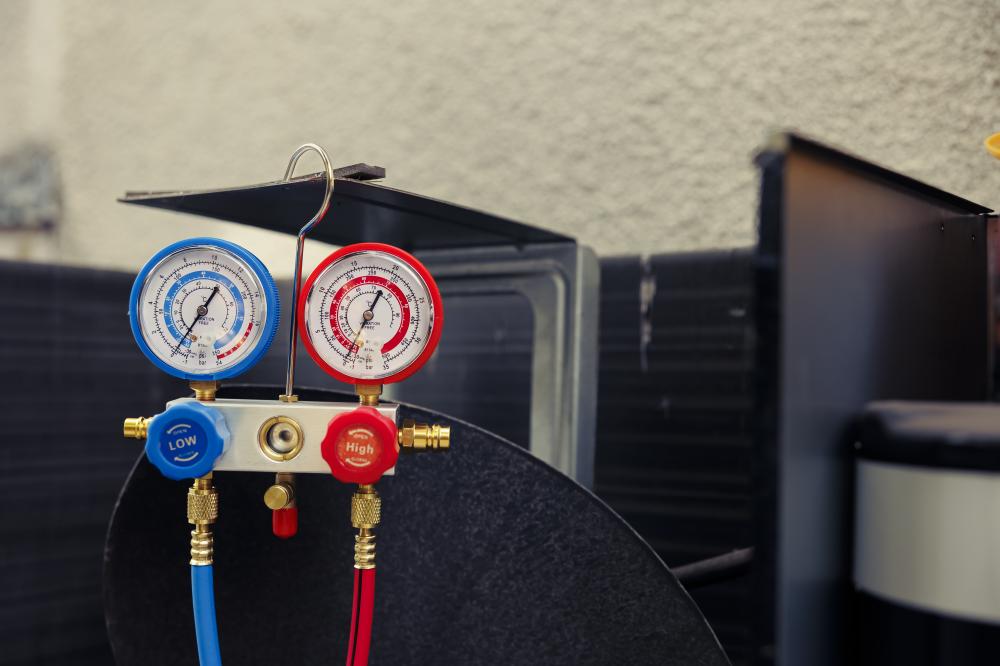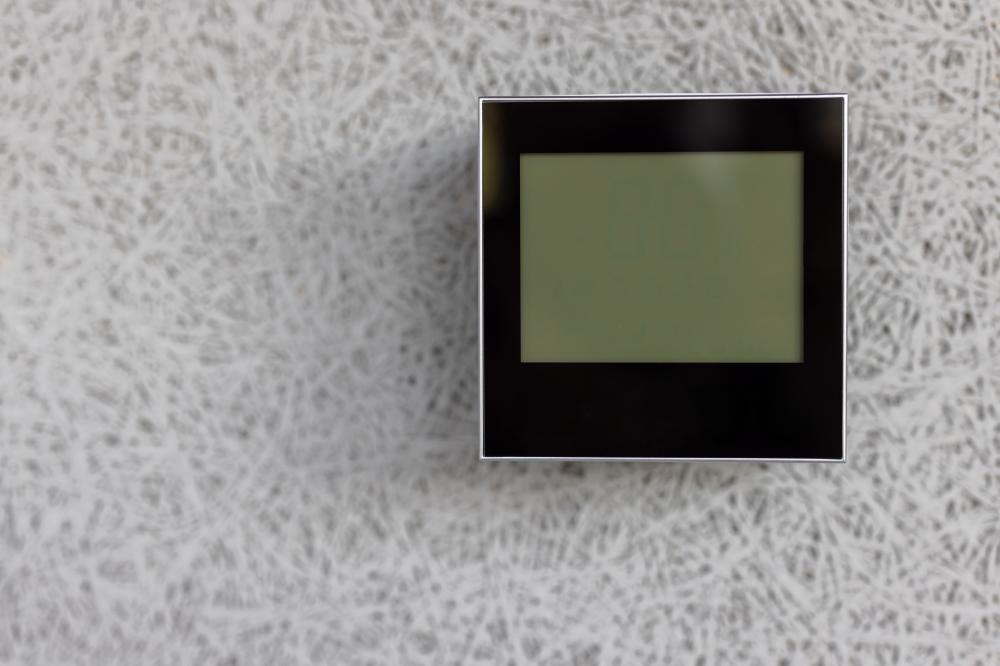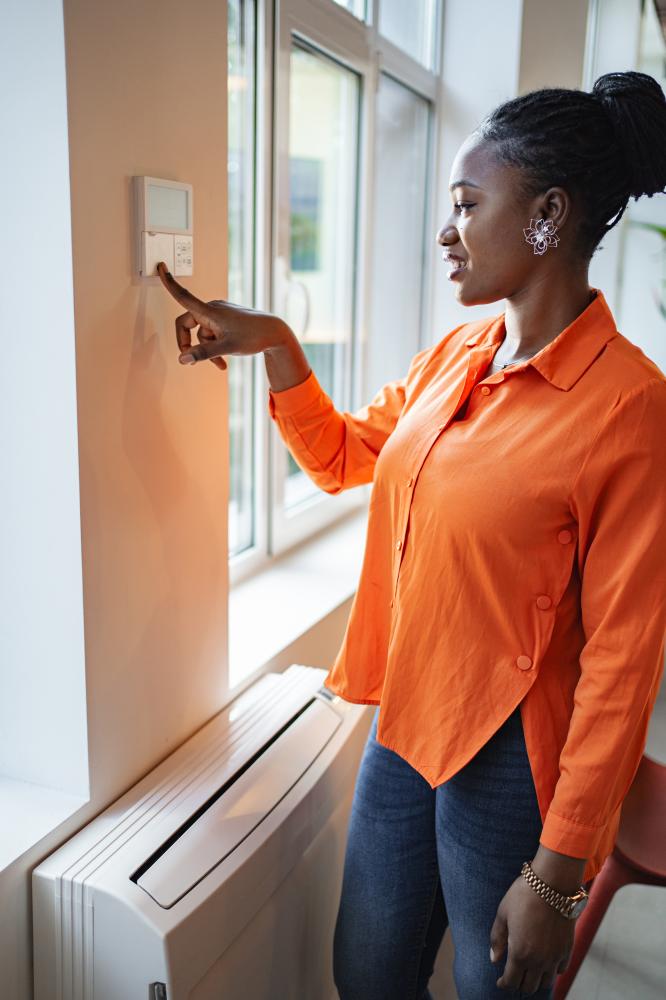How To Fix Hvac

Identifying Common HVAC Issues
Whether you're coming home to an unexpected chill or sweltering heat, knowing how to fix HVAC issues can be quite a lifesaver. One of the most pervasive problems homeowners face involves inconsistent temperature regulation. If your HVAC system is blowing hot when it should be cool, the thermostat could be the culprit. It's essential to ensure your thermostat is set correctly and has functioning batteries, as this simple fix could save the day.
Another common headache is when the HVAC system won't turn on at all. Often, this issue can be traced back to a tripped circuit breaker. Check your electrical panel to see if any circuits need resetting. Should this not resolve the problem, there might be deeper electrical issues requiring professional attention. Home Alliance technicians frequently encounter such issues and possess the expertise to resolve them swiftly.
Homeowners also frequently deal with dirty or clogged air filters. Dirty filters restrict airflow, making your HVAC system work harder, which not only decreases its efficiency but also shortens its lifespan. Regularly replacing your air filters can significantly improve your system's performance, a small maintenance step that can prevent larger issues down the line.
DIY HVAC Fixes You Can Try
For those keen on handling minor repairs themselves, there are some simple DIY techniques that can address minor HVAC issues effectively. Regularly cleaning your HVAC system can greatly enhance its efficiency. This includes dusting the vents and ensuring the outdoor unit is free of debris. A clean system is a happy system, after all!
If you're experiencing uneven heating or cooling across your home, you might need to rebalance the air distribution. You can do this by adjusting the dampers in your ductwork. Many homeowners are surprised by how much of a difference this small adjustment can make in comfort.
It's advisable to inspect your ductwork for leaks. Seal any gaps using metal tape or specialized sealant, as even a small leak can lead to significant energy loss over time. From Home Alliance's experience, such proactive maintenance can keep your system running efficiently and extend its operational life.
If these steps seem daunting, remember that Home Alliance technicians are always a phone call away to offer expertise tailored to your specific needs. These professionals often resolve such issues with ease, ensuring your home remains a comfortable haven no matter the season.
When to Call in the Experts
While the urge to tackle HVAC issues on your own is understandable, certain situations warrant professional intervention. If you've attempted basic troubleshooting but the system still won't operate correctly, it might be time to enlist a professional. Strange noises, like banging or squealing, can signal more serious mechanical problems that DIY efforts can't fix.
Some issues, like refrigerant leaks, are best left to seasoned experts due to the technical knowledge required. Refrigerants are hazardous substances, and incorrect handling can be dangerous both for you and the environment. Home Alliance's certified technicians are trained to manage these materials safely and efficiently.
Persistent issues with energy efficiency may also indicate it's time for a professional assessment. If your energy bills have been steadily climbing without increased usage, an expert evaluation might uncover inefficiencies or faults that require specialized attention.
Ultimately, knowing how to fix HVAC problems involves recognizing when professional expertise is needed. Home Alliance stands ready to provide timely and effective solutions, ensuring your HVAC system functions seamlessly, keeping your home comfortable year-round.

Identifying Common Thermostat Issues
Thermostats are the nerve center of your heating and cooling systems, ensuring optimal comfort in your living or working space. However, like any electronic device, they can malfunction at times. It's crucial to identify the common signs of a faulty thermostat to address these issues head-on. Weak batteries, loose connections, and inaccurate temperature readings are some of the telltale indicators. Recognizing these symptoms early can save time and prevent further complications.
A common problem users encounter is when the thermostat display goes blank. This often happens if the unit is not receiving power, either from the batteries or the electrical system. Another issue is when the HVAC system doesn't turn on at all, which can be traced back to a misconfigured or broken thermostat. If you're puzzled about how to fix a thermostat, understanding these symptoms is the initial step towards resolving the problem effectively.
Step-by-Step Guide on How to Fix a Thermostat
Checking the Power SupplyBefore delving into complex solutions, examine the power supply to your thermostat. Start by replacing the batteries with fresh ones if the device is battery-operated. Make sure to clean any corrosion that might hinder the battery connection. If your thermostat is connected directly to your home's electric system, verify that the circuit breaker is switched on. Sometimes, a simple reset of the breaker can resolve the issue.
Inspecting the WiringWiring problems are a frequent culprit behind thermostat malfunctions. Gently remove the faceplate of the thermostat to access the wiring. Ensure that all wires are securely connected to their respective terminals. An electrician once mentioned how a loose wire, which appeared trivial, was the root cause of an intermittent heating problem in my own home. Though a bit daunting, addressing the wiring can be the key to fixing faulty thermostats.
Resetting the ThermostatIf the wiring and power supply seem intact, your next move should be resetting the thermostat. Many models have a reset button or a specific sequence to reset the settings back to factory defaults. This step can resolve any software glitches or incorrect settings. If you're unsure how to fix a thermostat in this manner, consult the user manual or the manufacturer's website for detailed instructions.
Considering Professional Assistance
Even the most adept DIY enthusiasts might encounter complexities beyond their reach. In cases where the problem persists despite your best efforts, it's wise to enlist the services of a professional. Companies like Home Alliance, known for their expertise in HVAC repairs, offer reliable solutions for stubborn thermostat issues. Their team can diagnose hidden problems and ensure your system is running smoothly.
Moreover, a professional inspection can uncover underlying issues that might not be immediately apparent. As one satisfied customer recalled, "Home Alliance's thorough examination not only fixed my thermostat but also improved my entire HVAC system's efficiency." While tackling minor issues yourself can be satisfying, know when to call in the experts for a seamless resolution.
In summary, learning how to fix a thermostat involves a balance between basic troubleshooting and knowing when to seek professional help. Regular maintenance and timely interventions can prolong the life of your thermostat and enhance the comfort of your home or office. With knowledge and a little patience, you can tackle most thermostat issues head-on, ensuring your space remains a haven of comfort.
Common Air Conditioner Issues
Air conditioners are complex systems that can suffer from a variety of issues, often leading homeowners to seek advice on how repair air conditioner units. One frequent problem is poor airflow, which might be caused by a clogged filter. It is advisable to check and replace filters every few months to ensure optimal performance. Another common issue is a refrigerant leak, which can significantly affect the cooling efficiency and requires a professional to properly handle and recharge.
Strange noises or unusual odors coming from the unit can signify mechanical issues that might not be immediately apparent. These could be due to clogs in the drain lines or motor problems. Regular maintenance checks by professionals, like those offered by Home Alliance, can preempt such issues before they become costly repairs.
Lastly, some units may experience electrical control failure, particularly if they are oversized for the space they are meant to cool. Frequent cycling or failure to turn on could indicate this issue, often requiring rewiring or part replacement to restore functionality.
Troubleshooting Strategies
When considering how repair air conditioner systems, it's valuable to have some basic troubleshooting strategies in mind. Firstly, always confirm that the thermostat settings are correct. Many times, simple errors like wrong settings can lead to a perceived malfunction. Ensuring the thermostat is set to the desired temperature and mode can often solve the issue.
If the problem persists, checking the circuit breaker is a worthwhile step. Power surges or overloading can trip the breaker, cutting power to the unit. If the breaker continually trips, it might indicate a more complex electrical issue that should be addressed by professionals.
For those with some mechanical inclination, inspecting the outdoor condenser unit for debris or damage can help. Clearing leaves, dirt, or other obstructions can improve airflow and cooling efficiency. However, repairs requiring technical expertise, such as replacing capacitors or motors, should be left to qualified technicians like those from Home Alliance.
Lastly, documenting any observed issues or symptoms can be helpful when discussing repairs with a technician. Providing a detailed history of the problem can aid in quicker diagnosis and resolution.
Professional Repairs and Maintenance
There are times when DIY attempts on how repair air conditioner units fall short, necessitating professional intervention. Seeking the expertise of a dedicated HVAC service provider like Home Alliance is crucial for tackling complex repairs. Their trained technicians have the necessary skills to quickly diagnose and repair intricate issues, ensuring your air conditioning system is back to optimal performance.
Regular maintenance is another crucial aspect often overlooked by many homeowners. Scheduled check-ups can preempt potential issues, saving money and extending the lifespan of your unit. This is where Home Alliance's commitment to quality service and customer satisfaction shines, offering tailored maintenance plans.
Another less-discussed aspect is upgrading outdated units. Modern systems are more efficient and environmentally friendly, which can also reduce energy costs. Home Alliance provides consultations to evaluate whether a replacement might be more cost-effective in the long run, in addition to how repair air conditioner systems when feasible.
Choosing a professional service not only ensures correct repairs but also provides peace of mind, knowing that trusted experts are handling your home's comfort requirements. This human touch and reliability are what differentiate exceptional services like those from Home Alliance.

Can I fix my HVAC myself?
As someone who's spent years working with HVAC systems, I've seen many homeowners take on the challenge of fixing their HVAC units. While there are definitely some issues you can handle on your own, such as changing air filters or resetting a tripped circuit breaker, it's important to recognize when a problem requires professional expertise. For instance, if you encounter refrigerant leaks or persistent mechanical issues, it's best to call in the experts. At Home Alliance, we always encourage safety first, so don't hesitate to reach out if you feel unsure. Have you encountered any HVAC issues that you weren't sure how to handle?
How do you solve HVAC problems?
Solving HVAC problems often begins with a careful diagnosis. Take thermostats, for example--the nerve center of your system. If it's not working properly, it could be due to something as simple as a dead battery or a misconfiguration. By testing different components step-by-step, like checking the circuit breaker or ensuring proper airflow, we can often identify and address the problem efficiently. When it comes to solutions, what aspect of your HVAC system do you find most challenging?
What are the most common HVAC repairs?
Over time, certain HVAC repairs keep cropping up among homeowners. Common issues include clogged or dirty filters, misaligned thermostats, and electrical problems within the unit. These are frequently encountered because of the system's regular usage and the natural wear and tear that comes with time. At Home Alliance, we often find that a regular maintenance schedule can ward off some of these common repairs. Have you introduced any routine checks into your home maintenance to prevent these issues?
How much does an HVAC repair cost?
Repair costs can vary widely, depending on the nature and severity of the issue. For instance, a simple thermostat adjustment might only cost you the price of a set of batteries, whereas addressing refrigerant leaks or replacing a major part could be much pricier. On average, minor repairs could run you a few hundred dollars, but significant fixes can exceed a thousand. At Home Alliance, we ensure transparency in our pricing, so you know what to expect. How do you approach budgeting for unexpected repairs?
How to fix a thermostat?
Fixing a thermostat can often be a matter of addressing simple issues like replacing old batteries or recalibrating the device. Begin by checking the power supply, ensuring that it's functional. If the thermostat display is blank, this could indicate a power issue. Remove the faceplate to inspect the wiring for any loose connections. If all checks out, a reset might be necessary to return to factory settings. We at Home Alliance have seen how a simple fix can restore comfort to a home quickly. Have you ever had a small fix make a big difference?
How to repair an air conditioner?
Repairing an air conditioner often begins with diagnosing the problem. Issues like poor airflow could indicate a clogged filter, which can be easily replaced. However, refrigerant leaks or electrical issues are best left to professionals due to the complexity and risks involved. Regular maintenance, such as clearing debris from the outdoor unit, can prevent larger problems. Our technicians at Home Alliance are always ready to step in for those tasks that require more technical expertise. What have been your experiences with maintaining your air conditioner?
Resources
- U.S. Department of Energy - Official website providing information on energy efficiency and home cooling systems.
- Environmental Protection Agency (EPA) - Resource for air quality information and tips on maintaining HVAC systems.
- ENERGY STAR - Program by the U.S. Environmental Protection Agency and the U.S. Department of Energy promoting energy efficiency.
- National Institute for Automotive Service Excellence (ASE) - Organization offering certification programs for HVAC technicians and professionals.

